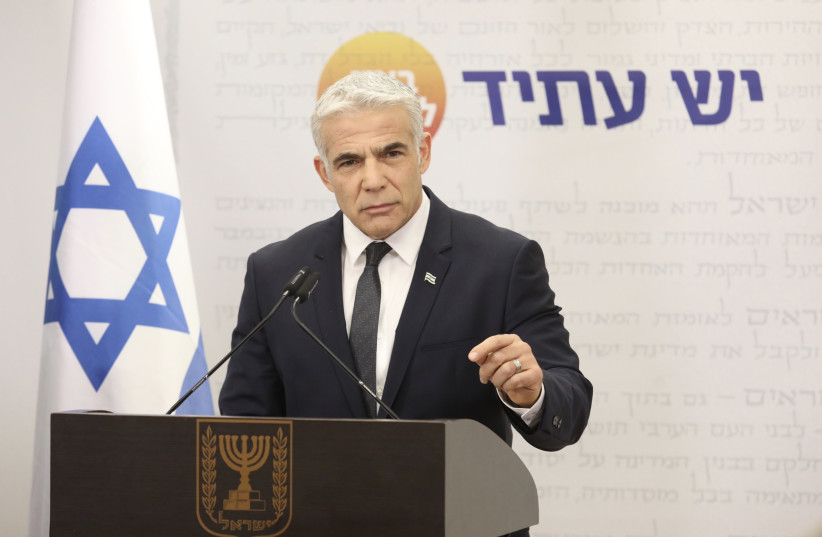The declaration by Foreign Affairs MK Yair Lapid that the current government would not advance a diplomatic process with the Palestinians is disappointing. According to Lapid, a diplomatic process would forestall the likelihood of Israel being labeled an apartheid state. But the labeling is not the main issue, it is only a diplomatic process that can prevent Israel from turning into a binational apartheid state, for which we are headed towards with every day that we fail to advance a two-state solution.
It is disappointing because Lapid has professed his support for a two-state solution and all the polls indicate that a majority of Israelis support this solution above all others. What is more, a recently survey commissioned by the Geneva Initiative (GI) indicates that most Israelis favor diplomatic negotiations with the Palestinian leadership.
Is the most powerful member of Israel’s government of change still suffering the poisonous effects of the legacy of Benjamin Netanyahu governments?
Lapid has already proven that he is not necessarily bound by Netanyahu’s harmful policies. He skillfully restored relations with Jordan. He improved ties with the European Union (EU), despite its criticism of Israel’s occupation and settlements. He normalized relations with Sweden, despite its recognition of a Palestinian state. He engaged in rebuilding Israel’s relations with the US Democratic Party and American Jewry, neglected by Netanyahu in favor of an alliance with the populists and messianic evangelists in the US. In a refreshing recent comment, Lapid said Israel was not necessarily opposed to an agreement between world powers and Iran, after Netanyahu fought every agreement and drove Iran closer to military nuclear capabilities.
Lapid certainly realizes that without a diplomatic horizon we are weakening moderate Palestinians and bolstering Hamas. He surely understands that without a diplomatic horizon the Palestinian Authority (PA) will be hard pressed to continue its security cooperation with our forces, and that saves lives on a daily basis. He must have heard during his meetings in the United Arab Emirates (UAE) and Bahrain that the absence of a diplomatic horizon hampers the expansion and deepening of the normalization circle. He certainly knows that the absence of a diplomatic horizon poses a dire threat to our ability to preserve the Zionist vision of Israel as the democratic nation-state of the Jewish people.

Limiting the conflict with the Palestinians, a strategy espoused by Micah Goodman, is important in order to ease the daily lives of our Palestinian neighbors, but it is not an alternative to the need for determined action to end the occupation that threatens our strategic and moral future. Limiting the conflict could anesthetize the diplomatic process to a great extent, causing far more harm than good.
That is why last week’s meeting between PA chairman Mahmoud Abbas (Abu Mazen) and Defense Minister MK Benny Gantz was important for the sake of strengthening cooperation, but cannot replace a significant diplomatic process.
I am not naive and I realize the importance of preserving the current government and preventing the return of an alliance between Netanyahu supporters and extremist right-wingers, but the refreshing policies adopted by the government of change in so many areas will not go down in the annals of history unless it seeks with all its might to extricate Israel from the greatest threat to the future of the Zionist vision.
Lapid has displayed impressive political capabilities in facilitating the formation of this government. Lapid proved that an Arab party can take part in an Israeli government and that agreements can be reached between opposing ideological parties for the benefit of the citizens of the state of Israel. He must display that same political and diplomatic wisdom by presenting a diplomatic horizon. The diplomatic horizon is the Zionist horizon.
The writer is the Israel director of J Street, the political home of pro-Israel and pro-peace Americans, a board member of the Mitvim Institute for Regional Foreign Policies and a senior adviser for international and diplomatic affairs for the Peres Center for Peace & Innovation. He served as an Israeli diplomat in Washington and Boston, and was an adviser to the president in Israel.
